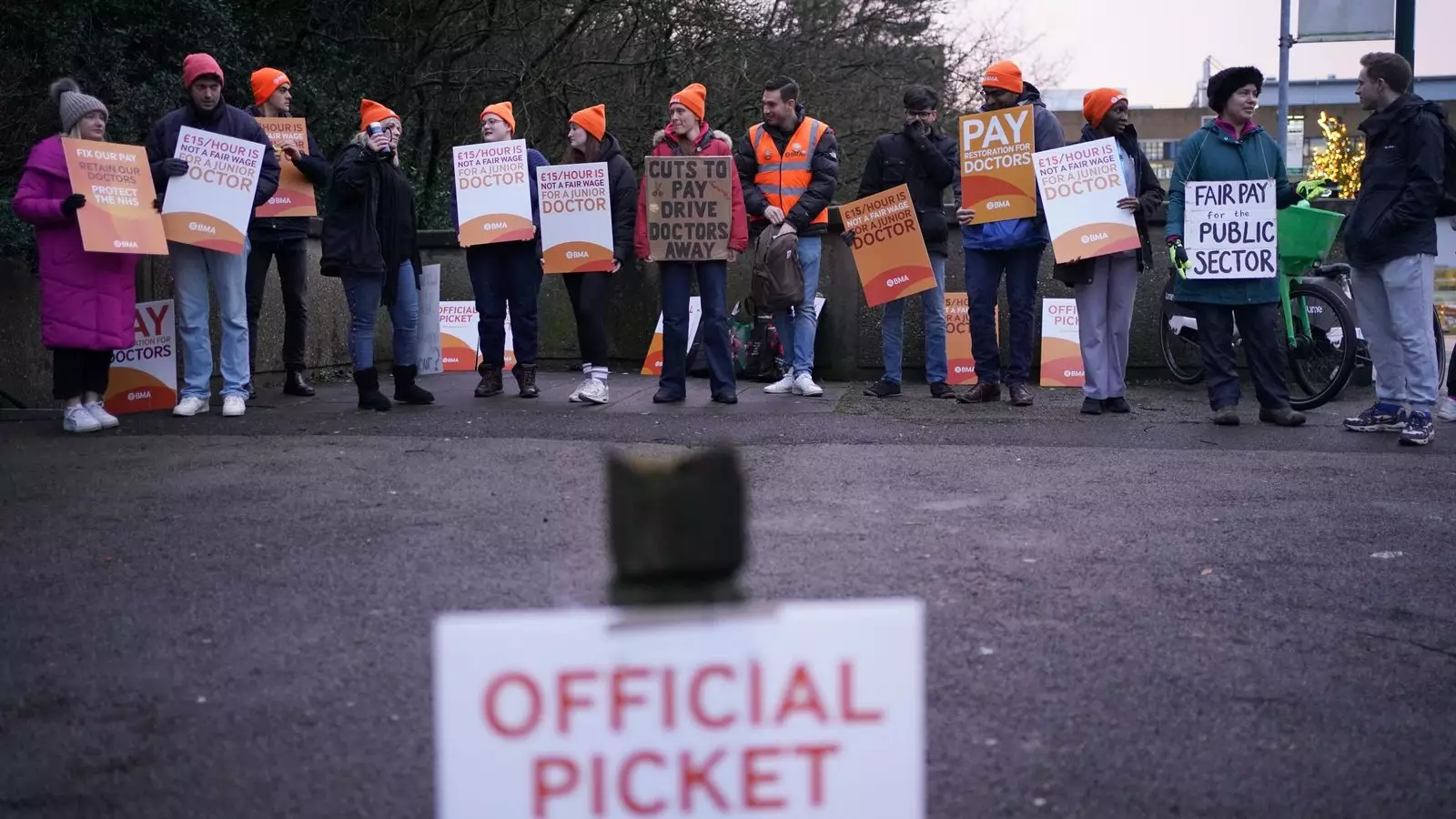The ongoing pay row between junior doctors in England and the government has reached a critical point, leading to a five-day strike that commenced at 7am on Saturday and is expected to last until 11.59pm on Wednesday. This marks the 10th stoppage by junior doctors since last March, with the previous longest strike in January lasting six full days. The repercussions of this latest walkout are significant, as tens of thousands of hospital appointments are set to be cancelled or postponed, causing major disruption to patients across the country.
In response to the strike action, Health Secretary Victoria Atkins expressed her disappointment, emphasizing the government’s willingness to negotiate and make a credible pay offer to junior doctors. However, the refusal of the BMA junior doctors committee to put forward the offer to its members has exacerbated the situation. Despite junior doctors receiving a pay rise averaging nearly 9% this financial year, the BMA’s insistence on a 35% “pay restoration” as a starting position has led to an impasse in negotiations.
The continuation of strike action raises concerns about the long-term effects on patients and the NHS as a whole. The cancellation and rescheduling of more than 1.3 million appointments and operations since the start of industrial action have already strained the healthcare system. Health officials, including NHS national medical director Professor Sir Stephen Powis, have expressed alarm at the increasing frequency of strikes and the disruption they cause. Deputy chief executive of NHS Providers Saffron Cordery highlighted the negative impact of ongoing strikes on staff morale and patient care, emphasizing the need for a resolution to prevent further harm.
Despite calls from various stakeholders, including Labour’s shadow health secretary Wes Streeting, for Prime Minister Rishi Sunak to engage in negotiations and find a fair solution, the political stalemate persists. The refusal to negotiate and the escalating tensions between the government and junior doctors underscore the challenges in reaching a resolution. The uncertainty surrounding future strike actions and the potential for further disruptions in the healthcare system create a sense of urgency for all parties involved to come to the table and find a way forward.
The ongoing pay dispute and strike action by junior doctors in England are causing significant disruptions to patients and the NHS. The lack of progress in negotiations and the unwillingness of both sides to compromise pose a threat to the healthcare system’s stability. It is essential for all parties to prioritize the well-being of patients and work towards a resolution that addresses the concerns of junior doctors while ensuring the efficient and effective delivery of healthcare services.


Leave a Reply